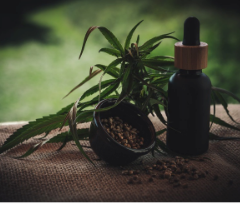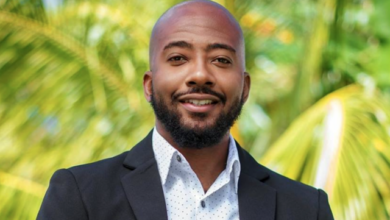USAID Says Corruption Has Declined in Jamaica Since 2006
KINGSTON, Jamaica – Corruption has declined significantly in Jamaica since 2006, Director of the United States Agency for International Development (USAID), Dr. Karen Hilliard, has confirmed.
In an interview with JIS News, Dr. Hilliard explained that USAID began conducting democracy surveys, every other year, in Jamaica since 2006. The first report revealed that 36 percent of Jamaicans surveyed had been victims of corruption during the previous year.
“Now when we repeated that survey in 2008, that figure had dropped to 24 percent. So, while it dropped from one in three to one in four, when you explain it that way it doesn’t sound all too impressive, but a 12 percent drop over a year and a half, or over two years, is very significant,” Dr. Hilliard said.
“I think it shows that the government and the private sector got the message when the voters here, in the last (general) election, expressed their distaste for pervasive corruption and various entities, both in the public and private sectors, are beginning to do something about it and its beginning to show results,” she explained.
The Mission Director, however, noted that despite the data showing corruption is declining; the vast majority of Jamaicans still consider the country very corrupt.
“The perception is that the country is very corrupt and, in fact, when you look at this regionally, in Latin America and the Caribbean, the perception of corruption here in Jamaica is exceeded only by the perception of corruption in places like Haiti, Bolivia and Mexico, which we all know are very corrupt places,” Dr. Hilliard noted.
She said, relatively speaking, Jamaica is still one of the more corrupt countries in Latin America and the Caribbean, even though it is a far cry from Haiti which scores at the absolute bottom worldwide. But, the perception of corruption is declining and the actual data showed it is declining.
” In other words, we have seen a decline in the past two years, but not everybody is perceiving it that way yet, and I think that points to the need to do a couple of things,” she said.
She suggested that the Government needed to continue to hammer away at corruption in Jamaica; and secondly, to make it clear that they are doing so, and to make sure that they let the public know how they are succeeding and where they are succeeding.
“It is important for people to realise that the situation is far from perfect here and there is much left to be done. No one would deny that. (But), things are moving in the right direction and they are moving in the right direction not just a little bit, they are moving there significantly,” she explained.
“Part of the reason why I think people perceive corruption as so pervasive in Jamaica, is that corruption occurs in a variety of sectors,” Dr. Hilliard pointed out.
One other significant factor, she stated is that Jamaicans, between 2006 and 2008, expressed much less tolerance for corruption, while in the 2006 survey the bulk of respondents said it was pervasive and it is just the way business is done in Jamaica.
“This past year’s survey, which we haven’t yet launched, showed people were much less likely to just roll over and play dead where this issue was concerned. That is good, because the more the society demands clean government and a clean business environment, the more government and private business have to respond, and that is exactly what you want to see in a democracy,” she declared.
“You want to see civil society holding government and the private sector accountable for transparency, and reporting it when they don’t find it,” Dr. Hilliard said.
The Mission Director said that one of the ways that that USAID is supporting anti-corruption activities in Jamaica, is through the National Integrity Action Forum (NIAF). This forum emerged from an evaluation report that was sponsored by USAID on corruption in Jamaica.
“The idea of the forum is to bring all the reform champions together, whether that be the Auditor General, the Contractor General, the Commissioner of Police or Customs: Bring them all together under one roof, so that they can support each other and band together to fight corruption,” Dr. Hilliard said.
She noted that the forum is tasked over the next two years to developing standard operating procedures, on how these various entities can cooperate together to detect, investigate and prosecute corruption.
Director of the NIAF, Professor Trevor Munroe, told JIS News that the NIAF hopes to develop a “protocol” of ensuring greater collaboration between the entities in fighting corruption.
“What we hope to achieve in that area of our work, is to find out from those who are involved in the front lines -the Chief Justice, the Director of Prosecution, Commissioner of Customs and others on – how we can reduce barriers to closer cooperation, and how can we facilitate them working together while preserving their independence in getting at the corrupt ones,” Professor Munroe said.
He also explained that the NIAF is charged with coming up with a set of standard messages to educate the public about corruption, as well as developing a consolidated schedule of legal regulatory policy reforms designed to combat corruption, including reduced opportunities for corruption.
“We have the Corruption Prevention Act, we have a whole set of laws and we have a number of institutions. The missing link is that they are not that effective, because many of these institutions are not fully resourced and many of them are not properly supported. So what we are looking at is the kind of reforms that will make them more effective than they are now,” Professor Munroe said.
He recalled that the Government is now working on a Whistleblower Act, which will protect those who tell what they see, that is illegal or corrupt, without risking their job or their position.
He also added that the NIAF is currently developing a set of proposals to improve legislations and institutions, through discussions with all of the persons who are engaged in the fight against corruption, “so as to lift our levels of honesty and integrity.”


